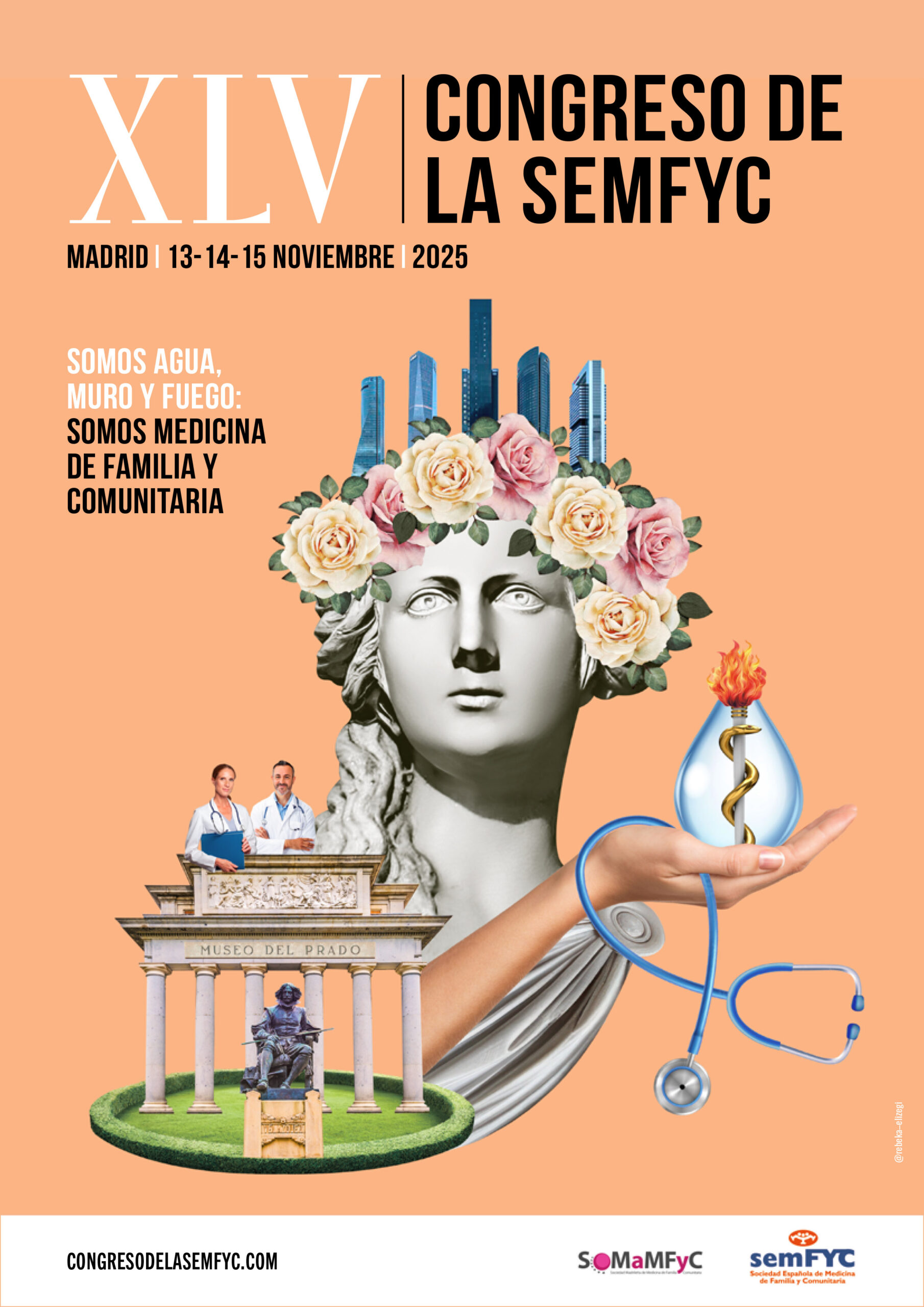A través de semFYC conocemos desde la red de investigación EGPRN (European General Practice Research Network) los proyectos activos que aceptan investigadores.
- Están activos los perfiles de investigadores en la web de forma pública: https://www.egprn.org/profiles
- Los proyectos colaborativos actuales se pueden consultar: https://www.egprn.org/page/current-projects
- El programa de mentoría para jóvenes investigadores sigue activo. Más información aquí: https://www.egprn.org/page/fellowship
- El curso sobre investigación en Atención Primaria acepta nuevos alumnos: https://www.egprn.org/page/web-based-course
- Próxima fecha límite para pedir financiación a las becas del EGPRN: 1 de Abril 2023.
- Información: https://www.egprn.org/page/project-funding
Proyectos que aceptan investigadores
- IP: Investigador Principal
- Proyecto diseñado: Proyecto cuyo diseño se completó
- Proyecto en Desarrollo: Proyecto que acepta sugerencias/cambios en el diseño
1.European general practitioners attitudes towards person-centered care and factors that influence its implementation in everyday practice
- IP: Goranka Petricek.
- Coordinador nacional en España: Jesús González Lama, jegonla@telefonica.net
- Población diana: médicos de familia
- Tema: Actitudes de los médicos de familia a la atención centrada en el paciente
- Situación: proyecto diseñado con más de 20 países involucrados. Está en las primeras fases de implementación, aceptan investigadores. La recogida de datos empezará a principios de 2023.
Background:
Person-centered care (PCC) is widely acknowledged as a core value in family medicine and has been included as a core value in the latest WONCA definiAon of family medicine. It has been associated with many posiAve outcomes of care: paAents’ emoAonal state, saAsfacAon and empowerment, medicaAon adherence, reducAon of malpracAce, complaints and improvements in physician saAsfacAon and consultaAon Ame.
Although researchers used different approaches to implement person-centered care intervenAons, there has been no comparison of GPs aJtudes towards person-centeredness in across European countries.
Aim: Theaim of this study is toinvestigate GPs attitudes towardsperson-centeredness.
Furthermore, we want to get better understanding of GPs positive/negative factors related to practicing PCC in everyday practice as well to document the obstacles to practicing PCC in everyday practice
Method: Cross-sectional questionnaire-based study in 21 European countries will be conducted. GPs will be requested to participate via different professional channels (medical associations, professional societies, institutional mailing lists…).
Questionnaires will be used: Patient Physician Orientation Scale (PPOS), questionnaire with open-ended questions related to person-centered care in everyday practice and Perceived Stress Scale (PSS).
The global/national ethical approval will be required. GPs in each participating country will receive an invitation via e-mail to participate in the study with a link for the online questionnaire. The study will be carried out in close collaboration with the European Association for Quality and Patient Safety in Primary Care (EQuiP) and the European General Practice Research Network (EGPRN). The study will be coordinated by the Department of Family Medicine, School of Medicine University of Zagreb (Croatia).
Results: GPs attitudes towards person-centeredness will be described and investigated in correlation to socio-demographic data and work stress in each participating European country. GPs positive/negative factors as well the obstacles to practicing PCC in everyday practice related to practicing PCC in everyday practice in European countries will be analysed.
Conclusions: Regardless of the specific context of care that is highly dependent on the patient, physician and healthcare system characteristics, person-centered care represents a core value of family medicine that should be implemented in family physicians’ everyday work across Europe.
2.Patients’ willingness to have medica&ons deprescribed in Europe: Protocol for a cross-sec&onal survey study
- IP: Renata Lüthold, E-mail: renata.luethold@biham.unibe.ch
- Institución: Institute of Primary Health Care, University of Bern, Suiza
- Tema: Investigar los valores del paciente a la hora de deprescribir y la influencia de la relación médico de paciente en la deprescripción en Europa. El estudio está diseñado en dos fases.
- Población diana: Pacientes y médicos de familia.
- Estudio multicéntrico en al menos 6 países europeos.
- Situación: Proyecto diseñado, buscando ahora colaboradores
Background:
Polypharmacy has been associatedwith severa! health-related problems in older adults. To reduce inappropriate polypharmacy, deprescribing should be part of patients’ care. Understanding patients’ views and preferences in deprescribing at individual and country leve! may help health professionals to find effective ways to involve older adults when implementing deprescribing in primary care.
Research questions: To investigate older adults’ views and preferences on deprescr ibing in multiple countries and what role patient GP relationship plays in deprescribing decisions.
Method: This cross-sectional study is conducted in primary care settings in nine European countries. Eleven National Coordinator members of the EGPRN recruit 1O GPs per county, who recruit 1O patients each (total: 100 patients/site). Patients are included if they are 65 years and have polypharmacy (5 regular medications). Patients will fill in an online or paper-based survey containing questions on sociodemographic characteristics, willingness to have medications deprescribed (assessed by Revised Patients’ Attitudes Towards Deprescribing – rPATD), and patient-GP relationships (Wake Forest Physician Trust Scale). Patients are also asked about which specific medications they would hypothetically like to discontinue. To assess patients’ willingness to have medications deprescribed across countries, we will compare the proportions of self reported willingness to deprescribe and means of medicines number they would like to stop or reduce. We will report which medications were the most frequently considered for deprescribing and compare them across countries. To investigate the association between trust in physician and patients’ willingness to deprescribe we will use multilevel mixed-effect ordered logistic regression models. Data collection began in May 2022.
Results: Preliminary findings will be available at the conference.
Conclusions: lnvestigating the role of patient-GP relationship in deprescribing and assessing which specific medications patients would rather stop or reduce will help health professionals and researchers to design and implement deprescribing interventions that consider patients’ preferences.
Points for discussion: How can we facilitate the recruitment of GPs and patients in research? Which form of questionnaire is more efficient for enhancing response rate, on paper or online?
3.Continue or discontinue beta-blockers after myocardial infarction? – a case vignette study in Europe
- IP: MarOna Zangger, E-mail: marOna.zangger@biham.unibe.ch
- InsOtución: InsOtute of Primary Health Care, University of Bern, Suiza
- Tema: InvesOgar las acOtudes de los médicos de familia a la hora de deprescribir Beta Bloqueantes en pacientes con fracción de eyección conservada en Europa
- Población diana: médicos de familia
- Situación: Proyecto en desarrollo buscando colaboradores
Background:
The optimal long-term management of myocardial infarction with preserved left ventricular ejection fraction with respect to beta-blocker prescription is controversia! Recommendations for prescribing beta-blockers are based on studies conducted before the introduction of reperfusion therapy. Today, the question arises whether beta-blockers are still as beneficia! in those without heart failure or left ventricular dysfunct ion. Guidelines vary in the strength of recommendation for prescribing beta-blockers in these situations due to the lack of recent trials. However, unclear guidelines increase variation in clinical practice and quality of care. Our aim is to examine the reasons why general practitioners (GPs) prescribe or deprescribe beta-blockers in this clinical situation, where there is no clear evidence, and to assess the factors that might influence their decisions.
Research questions: How do GPs’ long-term beta-blocker prescriptions after myocardial infarction with preserved left ventricular ejection fraction vary across European countries and which factors influence their decision to prescribe or deprescribe beta-blockers in a situation in which the evidence is unclear?
Method: This will be a cross-sectionalonline case vignette study with GPs across different European countries.We will assess GP characteristics, their prescribing behaviors related to beta-blockers, and their decisions to deprescribe or reduce dosages of beta-blockers in case vignettes that differ in terms of patient age, history of myocardial infarction,comorbidities, and side effects.
Results: N/A
Conclusions: This study will shed more light on (de)prescribing decisions in a situation of uncertain evidence. We will investigate the extent of beta-blocker prescription variation and the reasons behind the (de)prescribing decisions. Future studies could focus on explanations for these differences to ensure high-quality levels of care.The reasons for (dis)continuation of beta-blocker therapy found in this study could also apply to other situations with unclear evidence. Also, they could be considered in future guideline recommendations to include GPs’ perspective.
Points for discussion: Would you be interested in participating in this study? What kind of case vignette would you see as relevant? What are your best practices about (de)prescribing beta-blockers in this situation?
4.Diabetic patients’ journey in healthcare: a multi-method, multi-center study proposal
- IP:Evrim Didem Güneş. E-mail:egunes@ku.edu.tr
- Tema: Entender los protocolos de atención al paciente diabéOco tanto desde un punto de vista de recoger datos cuanOtaOvos del paciente como descripOvo de los servicios implicados en la atención.
- Población diana: Pacientes diabéticos y procesos clínicos
- Situación: Proyecto en desarrollo buscando colaboradores
Background:
Diabetes Mellitus (DM) requires patients to adhere to severaltreatments, diagnostic examinations and admit to different health professionals. Thus patients face a complicated journey through the healthcare system. This journey might be affected by factors such as socio-culturalcharacteristics and healthcare services. One of the core competencias of family medicine, continuity of care, stands as a cornerstone to guide the patients in this complicated journey and isassociated with decreased emergency department attendance, hospitalization, and mortality.
Research questions: How can we describe diabetic patients’ journey in health systems with different integration levels by using existing data and operational research methods?
How is this journey experienced by the patients? Does continuity of care facilitate this journey?
Method: This multi-method, multi-country study will include adult patients with type 2 DM. Patients will be recruited by primary care physicians from participating countries by purposive sampling to ensure maximum variability in terms of age, literacy, gender and diabetes age.
The quantitative part will be conducted as follows. Data will be retractad from electronic medical records. Process mining will be applied to describe the paths of patients in the system.This method uses event logs to describe the processes, check conformance to defined processes and analyze processes by defining cycle and waiting times at various stages and identifying bottlenecks. Stastistical analysis will be performed via R package.The level of continuity of primary care will be calculated using the Usual Provider Continuity index in which the numerator is the number of visits with «own» physician for a year and the denominator is the total number of visits with other physicians for the same year.
The qualitative part will explore the behaviour and experiences of patients in their regular interactions with primary care physicians. For this, a phenomenological approach using semi-structured interviews is proposed.
Points for discussion: Are any audience participants willing to be partners in this study? How can we include partners from various countries? Which countries have electronic medical records about patients’ contacts with the health system and would it be possible to have access to such data?
5.Psychological and neuropsychological syndrome associated with Long-COVID
- IP: Raquel Gómez Bravo. E-mail: raquelgomezbravo@gmail.com
- Institución: CHNP, Rehaklinik. Ettelbruck. Luxembourg
- Tema: Entender los efectos del COVID-19 persistente en la esfera neuropsicológica de los pacientes a través de un cuestionario que incluye varias escalas además de aspectos sociodemográficos.
- Población diana: pacientes con COVID-19 persistente
- Situación: proyecto diseñado, buscando ahora personas para reclutar pacientes
Background:
Reports on long-term effects of COVID19 symptoms continue to rise while the pandemic is evolving. lt is estimated that 30% of people treated far COVID-19 have developed ‘Long COVID.’ Several post-COVID syndrome categories have been described that cover a range of physical,psychological and neuropsychological symptoms, although these have not yet been sufficiently and adequately been described.
Research questions: The overall aim of this project is to improve our understanding of the psychological and neuropsychological syndromes associated with Long COVID. To describe the different syndromes associated with psychological and neuropsychological symptoms associated with Long COVID. To analyze and phenotype the different syndromes associated with psychological and neuropsychological symptoms associated with Long COVID. To identify the factors associated with the development of Long COVID characterized by psychological and/or neuropsychological features (e.g. infection related, treatment associated with COVID-19).
Method:
Methodology: Descriptive,cross-sectional survey using an online questionnaire and online neuropsychological testing.
Recruitment: Participants were recruited through public relations, social media and information campaigns targeting the general public and health professionals.
Sample size: Snowball technique / convenient sample No ethical approval was needed.
The project was supported by the Luxembourg National Research Fund (FNR).
Results: Our results will allow far the first-time to draw conclusions on a broad range of behaviorally assessed neuropsychological symptoms including psychological symptoms in a large (and international) sample.
Conclusions: This project is of immediate urgency and will contribute to important knowledge far the public health management of the ongoing pandemic. The findings will provide recommendations specific to supporting not only country’s pandemic management strategy but also how to combat the impact of Covid-19 at an international level.To the best of our knowledge such anonline real-timeapproach to test far neuropsychological symptoms has not yet been carried in a larger Long-COVID cohort including controls.
6.General Practitioner’s Personality type and chronic illnesses diagnosis. A cross sectional study
- IP: Ileana Gefaell. E-mail: ileanagefaell@gmail.com
- Tema: Describir la influencia de la personalidad del médico de familia en el diagnóstico de patologías crónicas en las consultas de Atención Primaria
- Población diana: médicos de familia y pacientes
- Situación: Proyecto en desarrollo buscando colaboradores
Background:
Sorne studies have related the personality type with the physician’s specialties choice or the patient’s diseases. The Five-Factor Model of personality,is useful describing personality.We can identify: extraversion, openness, agreeableness, conscientiousness and neuroticism types. Agreeab leness, introvert personality types in medical schools,are more likely to end up as general practitioners (GPs). GPs tace with patients’ chronic diseases because of continuity of care, and personality might have a role in the diagnosis of the patient’s illnesses as it influences on decision making. Far instance, neurotic GPs have shown more anxiety due to uncertainty in their practice. Still the role of GP personality in the medical care of chronic patients is unknown
Research questions: Is there an association between the GP personality and higher prevalence of sorne type of chronic diseases in their practice?
Method: Multicentric cross-sectional study in Madrid city (Spain) in the first semester of 2023.Target population: GP and adults who were assigned to this GP far at least 1 year.
Primary outcome: Prevalence of chronic diseases in the patients assigned to this GP far at least 1 year according their personality test.
Variables: GP characteristics: sociodemographi c, time working in the samepractice, individual area of interest in medicine,personality test: Big Five lnventory, Spanish version. Patient’s characteristics: sex, age, presence of: DM, cardiovascular diseases (coronary heart disease,stroke, heart failure) psyquiatric diseases (anxiety and depression),arthrosis and joint pain.
Data will be extracted from the electronic health record and Consultaweb database program. Analysis: Descriptive analysis. The relationship between GP’s personality and patient chronic diseases will be analyzed with multivariate logistic regression.
Results: The hypothesis of this project is an expected relation between the type of personality of the GPs and the frequency of patient’s chronic disease. This could help to make a better approach to the diseases in the future.
Points for discussion: Does our personality influence on the diagnosis of the diseases of our patients? lf we knew our personality type,would our approach to patients be different? Would our patient’s personalities interfere in the results of the study?
7.Project NYSTAREC
- IP: Josep Lluís Ballvé, Eva Peguero. E-mail: evapeguero@ub.edu
- Institución: Idiap Jordi Gol
- Tema: Creación de una App para el diagnóstico y el análisis del nistagmo en el contexto del abordaje del Vértigo en Atención Primaria. La app se acompañaría de una guía diagnóstica y sugeriría la maniobra terapéutica a realizar.
- Situación: Proyecto diseñado, buscando colaboradores.
8.Collaborative Study: “How old do you feel?”
- IP: Robert Hoffman. E-mail: hoffman5@netvision.net.il
- Tema: Utilidad de preguntarle a los pacientes ancianos “ How old do you feel?”, no hay resumen publicado.
- Situación: Proyecto en desarrollo inicial, buscando colaboradores:9.The Örenäs Research Group
Grupo de investigación que estudia la atención a pacientes oncológicos en Atención Primaria.
Están abierto a recibir investigadores interesados en esta temática durante todo el año.
Tienen una reunión al año en distintos sitios de Europa para continuar trabajando en los proyectos activos del grupo.
Si necesitáis más información: egprn@semfyc.es
Etiquetas: ayudas, ayudas a la investigación, European General Practice Research, Investigación





Los comentarios están cerrados.